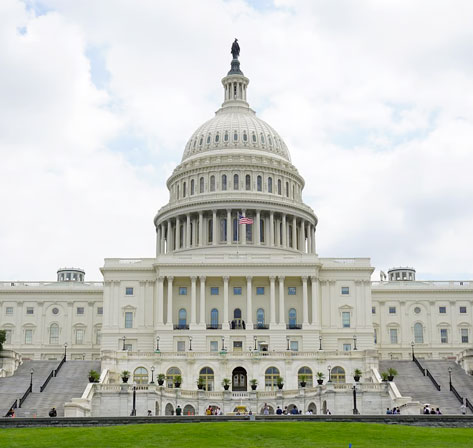June 2023
Is There a Future for U.S. Bipartisanship?
Region: US
Author: Karen A. Tramontano
When President Biden and the Speaker of the U.S. House of Representatives finally reached an agreement on the budget and debt ceiling, the Speaker of the House, Kevin McCarthy, received much of the praise. Was it so praiseworthy to note that Speaker McCarthy allowed the legislation to come to the floor for a vote knowing that he needed Democrats to support it? In a word, yes.
When President Biden and the Speaker of the U.S. House of Representatives finally reached an agreement on the budget and debt ceiling, the Speaker of the House, Kevin McCarthy, received much of the praise. Was it so praiseworthy to note that Speaker McCarthy allowed the legislation to come to the floor for a vote knowing that he needed Democrats to support it? In a word, yes. A look back in history helps to explain why McCarthy’s actions were, in a sense, controversial.
In 1978 after edging a moderate Republican out of the Speaker’s Chair, Republicans elected Newt Gingrich as Speaker of the House. From the day he was elected, Gingrich in voice and actions created a trajectory of partisan votes and attacks on Democrats that ultimately tried to take down the President of the United States – President Bill Clinton.
Under Gingrich, Republicans – even at the risk of getting nothing done – the Speaker would only consider legislation that could pass only with Republican votes. If the bill required the support of Democrats, the Speaker simply would not allow the House to consider the legislation. Additionally, the Speaker used his Republican majority to hold the White House and, at times, the Senate hostage. Under Gingrich, if the White House did not agree with the Speaker’s policies – the Speaker was willing to take the government down. Gingrich’s approach led to the birth of the “Tea Party” a right-wing faction of the Republican party that had less interest in governing and more interest in disrupting the function of government. The “Tea Party” continues to play a role in the Republican led House but has been joined by several other right-wing factions including the Freedom Caucus – the Caucus that famously caused McCarthy to struggle through 15 votes and agreements that weakened his power before they agreed to support him.
Fast forward to the pivotal vote on the budget and debt ceiling legislation – while many voters in the U.S. were not only relieved that the legislation passed but also pleased that the House finally did so with bi-partisan support – the right-wing factions in the Republican party not only voted against the legislation but also committed to undermining the Speaker on future votes. In fact, in the weeks that followed, the right-wing faction of the Republican party voted to stop legislation from coming to the floor for a vote – even legislation that they themselves supported.
A majority of voters want Congress – especially the House – to work together in drafting and passing legislation that is important to the U.S. and its citizens. It does not want one party control. Ignoring this principle, the right-wing faction of the Republican party demands that the Speaker take up legislation only if that legislation can pass the House with Republican votes. If McCarthy agrees to this demand, bipartisanship is dead and Congress will cease to serve the people and their interests.
But there is another way – a better way – a way the American people would like to see Congress function. The better way is to consider legislation that has support from Democrats and Republicans. Legislation with support from both sides is likely to be more moderate and in line with most voters. Like the bi-partisan budget and debt ceiling agreement legislation that has passed the House and the Senate with both parties’ support has stood the test of time. Some of those laws include the 1964 Civil Rights Act, the 1990 Americans with Disabilities Act, the 1997 Children’s Health Insurance Program, the 2012 Jobs Act, and the Biden Administration’s Infrastructure Act.
Unfortunately, if Speaker McCarthy adopted a bi-partisan approach to governing, his right-wing factions could use the rules of the House to stop it from functioning. They employed that tactic last week. But they could do more. To become Speaker, McCarthy weakened his office and agreed to allow just one Member of the House to call for his removal. Given the small margin the Republicans have, the right-wing can, and will, hold McCarthy hostage if he were to change course and try to govern with a bi-partisan consensus.
